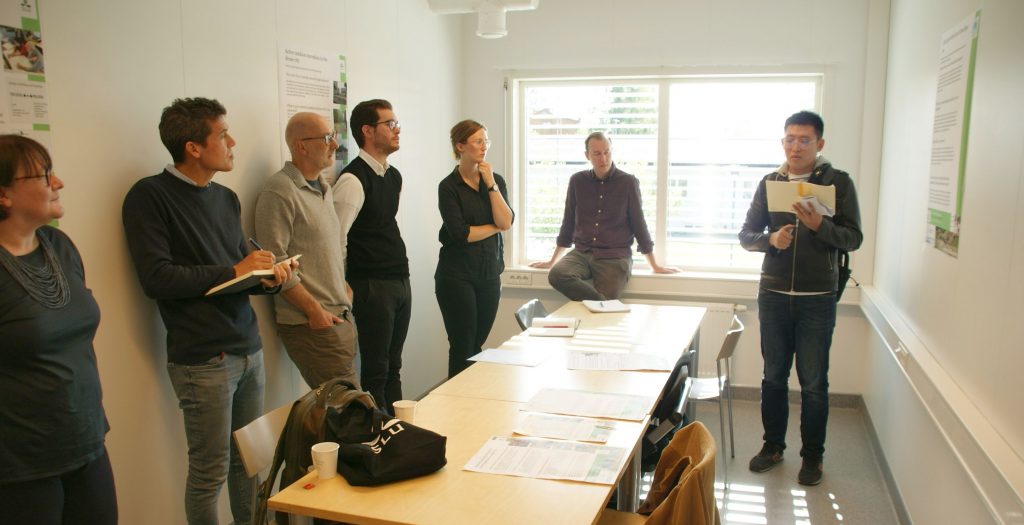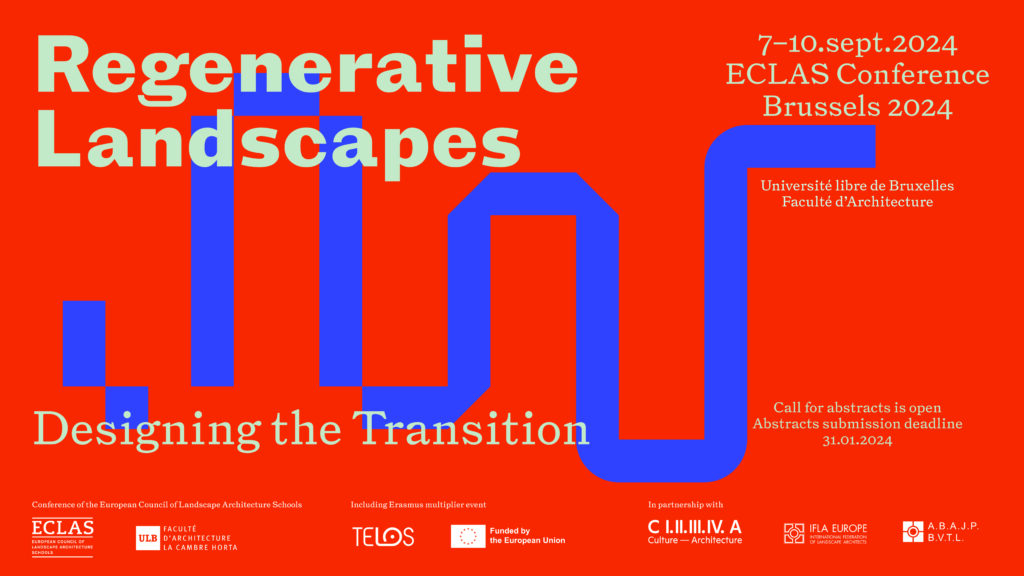Timing and structure
The goal of this annual event is to foster the exchange of European doctoral students and PhD supervisors.
The colloquium includes a poster session during which doctoral students and senior researchers can learn from each other and network. In addition, we try to arrange thematic sessions on research approaches and methodologies.
The ECLAS Doctoral Colloquium always takes places one day before the ECLAS Annual Conference. Details on the current programme and venue can be found at the ECLAS Conference Website.
Philosophy
As a practice-led discipline landscape architecture faces a challenge when trying to impose some sort of methodology on a somewhat theory-resistant subject. While the positivist sciences provide a well-equipped box of quantitative tools for investigating the physical layers of our environment and some for the social aspects, qualitative instruments from the domain of social sciences are often required for interpreting the human factor, especially in a deep way. The application of methods found in or developed by neighbouring disciplines has become common practice in landscape architecture research.
Conversely, the planning and design process itself has developed into a research method in its own right: Landscape architecture can create new knowledge through design and by the critical review or post occupancy evaluation of designs and implemented projects. However, this approach is only at the beginning of evolving its full potential. Furthermore, the product (or the process) itself can be regarded as an issue for research. We use case-study methodologies, critical analysis and hermeneutics for positioning landscape architecture in our cultural and social context. All of these can be valid approaches. Luckily, none of them tells the whole story on their own.
This is of course a reduced and incomplete spotlight on the situation but it shows the dilemma all (not only) young landscape architecture researchers face: How can we create new knowledge? In our colloquium we will try to approach this question by means of an interactive discourse among young and senior researchers from Europe and beyond.
Target Groups
This colloquium is addressed to both current/prospective doctoral students and senior researchers who are supervising thesis processes. It may also be of interest for prospective supervisors who wish to learn from peers about tutoring methods in this field. The overall objective is to share and discuss methodological aspects within the European landscape architecture research community. The meeting is open to all research themes and methodological approaches. Thematic groups will be formed according to the responses received to this call.
How to get involved as a thesis supervisor or senior researcher
The colloquium is intended to be a combination of individual mentoring, group discourse and thematic input on research methods. Thematic contributions in the form of a 15-20 minutes presentation can be made on the following topics:
- Research methods: Presentation of a specific methodical approach and its application in research projects (possibly linking to neighbouring disciplines, thus ‘bridging the gap’)
- Research design: Building a research framework, setting the research question, deciding on the approach, selecting methods, techniques….
- Supervising doctoral students: what makes a good supervision?
How to get involved as a doctoral student
Current and prospective doctoral students are invited to present a poster (A1) of their methodical approach in relation to the research hypothesis or question.

